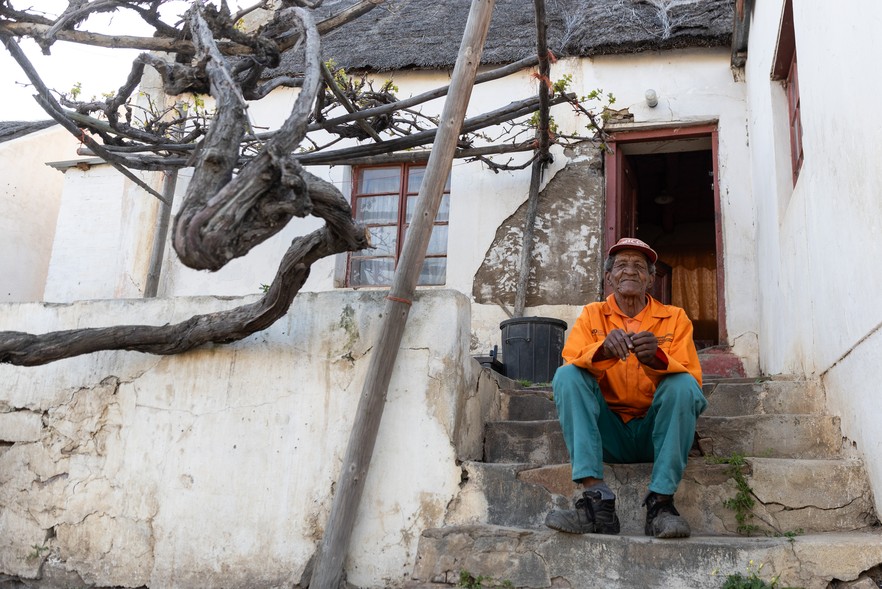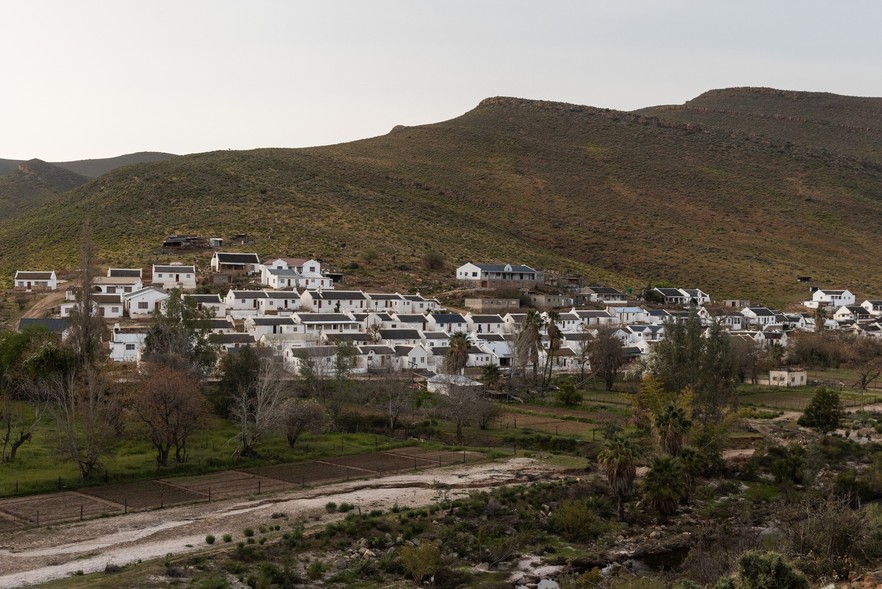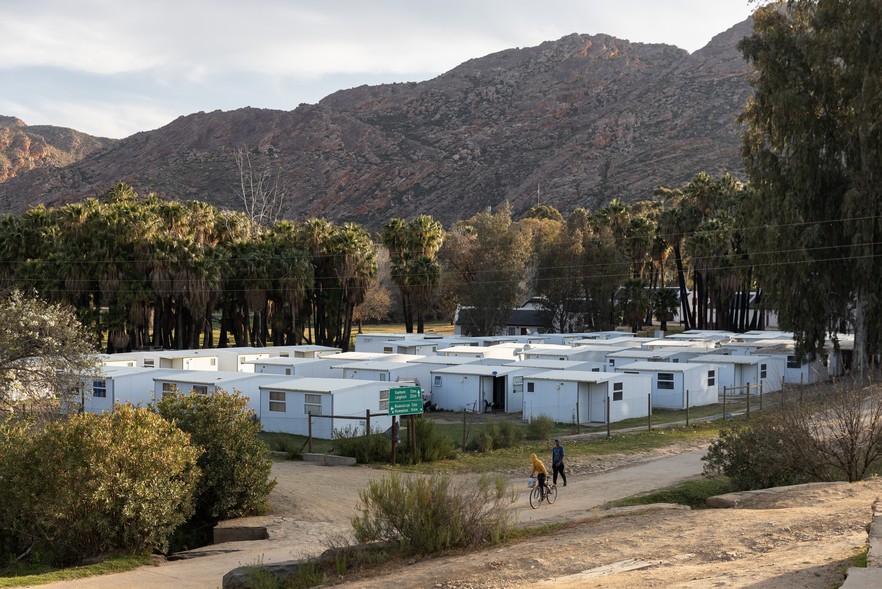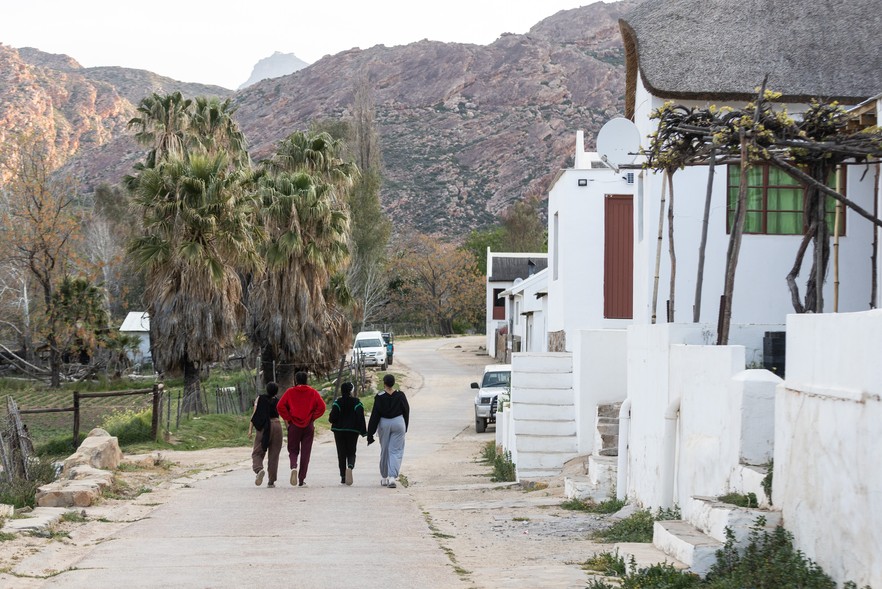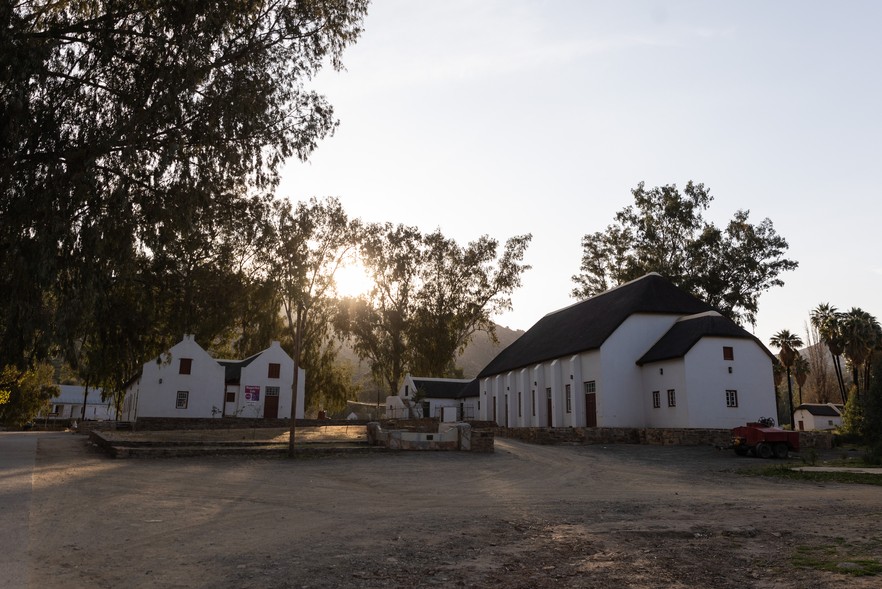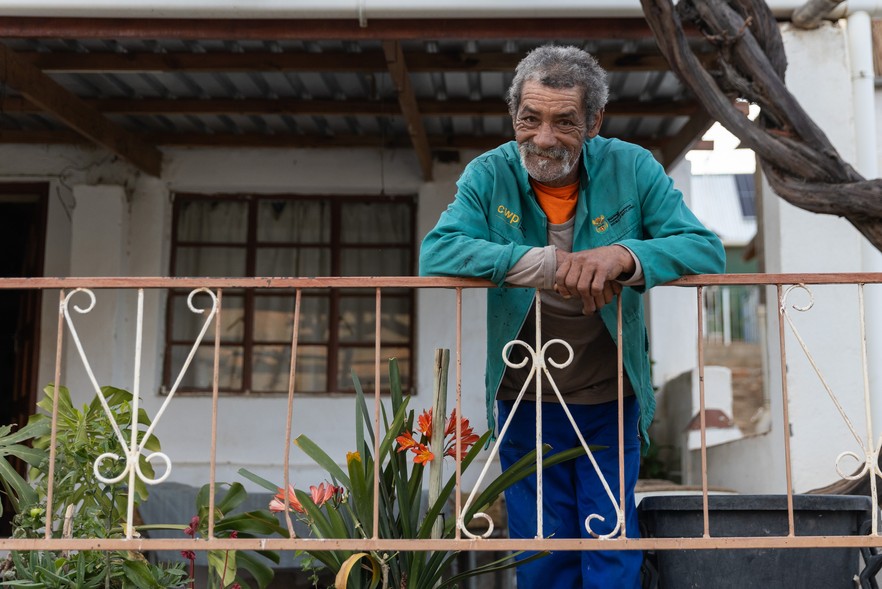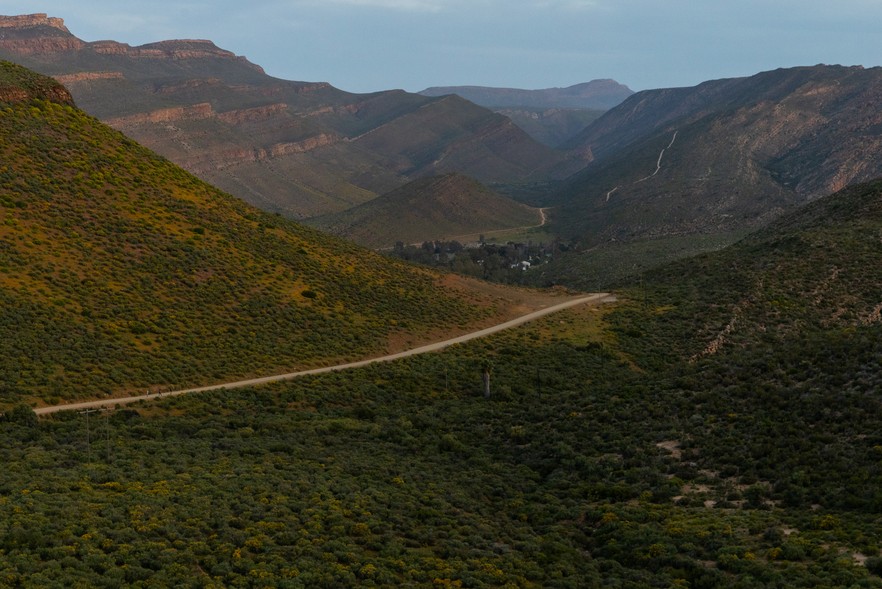Wupperthal: the town where you can sleep outside on your stoep
But jobs are scarce in this small Cederberg mission town
Eric van Rooy has lived in Wupperthal most of his life.
Eric van Rooy is 69. He grew up in the little town of Wupperthal in the Western Cape, and has lived there most of his life. He worked in the old glove factory for a while before it closed down. Now, he works for the Community Work Programme (CWP), and fetches his old age grant from Clanwilliam each month.
The CWP, a national initiative aimed at providing a safety net to working people, only employs about 47 people out of a population of about 7,400. But in a town where jobs are scarce, it is welcome. The programme is managed and funded by the National Department of Cooperative Governance.
Wupperthal is a small town about 70km from Clanwilliam.
Founded in 1830 as a Moravian church mission station, Wupperthal is the main mission station for about 14 outpost villages scattered around the Cederberg mountain region. The little Cederberg town is only accessible on a gravel road, a 70 km drive from Clanwilliam.
Every month van Rooy either pays R250 for transport to Clanwilliam or pays someone R50 to collect his grant for him.
He says he used to struggle but things are more “tranquil” now. He plans to retire next year.
In 2019, Western Cape Human Settlements Minister Tertuis Simmers handed over 53 temporary housing units for victims of the fire that devastated many houses and historic buildings.
The CWP work opportunities in the Cederberg include Citrusdal and the nearby Riverview Informal Settlement, Clanwilliam, Elands Bay, Graafwater, Lamberts Bay, and Wupperthal and its surrounds like Algeria.
“The work in the Cederberg Municipality is mostly focused on cleaning and greening. Other forms of work include, amongst others, the support of the local clinics, early childhood development facilities, and soup kitchens,” said Wouter Kriel spokesperson for Minister Anton Bredell of the Western Cape Local Government, Environmental Affairs and Development Planning.
More than a thousand people depend on social grants in the town.
According to the Cederberg municipality Integrated Development Plan (IDP) for 2024/25, in Wupperthal about 1,132 people are dependent on social grants. Of these, 433 are old age grant beneficiaries.
The town also relies on small-scale farming, especially rooibos, and also the historic shoe factory producing “veldskoene”. It is recognisable by its white, thatched-roof historic buildings centered around the Moravian church. It also has a post office, a small shop, a community hall, a primary school, a clinic, a restaurant and places to stay.
Wupperthal was devastated by a fire that swept through in December 2018 and destroyed over 50 houses and left 200 people homeless, who had to be placed in temporary houses.
Many houses and historic buildings have since been restored, including Leipoldt House, the community hall, the “Winkelhuis”, the school hostel complex, and the Palms Guest House.
Many of the historic buildings have been restored.
Kevin Valentyn, 58, also works for the CWP. He has lived in Wupperthal all of his life, and still lives in the house in which he was born. He said at the moment there was very little work in the town.
Heavy rains and flooding in the Cederberg in July completely cut the town off. Humanitarian aid had to be sent to the residents.
Valentyn said the community vegetable gardens were thriving before the floods. “Then the storm came and washed it away,” he said.
58 year-old Kevin Valentyn has lived his entire life in Wupperthal.
The small town is growing in size, says van Rooy. “More houses are being built,” he said. The population in the Cederberg is expected to grow annually by about 1.4% over the next few years.
Van Rooy says it is a tranquil town to live in and that Wupperthallers don’t “know” crime. You could sleep outside on your stoep, he says. “No one will bother you.”
Wupperthal is surrounded by the Cederberg mountains.
Support independent journalism
Donate using Payfast

Don't miss out on the latest news
We respect your privacy, and promise we won't spam you.
© 2024 GroundUp. This article is licensed under a Creative Commons Attribution-NoDerivatives 4.0 International License.
You may republish this article, so long as you credit the authors and GroundUp, and do not change the text. Please include a link back to the original article.
We put an invisible pixel in the article so that we can count traffic to republishers. All analytics tools are solely on our servers. We do not give our logs to any third party. Logs are deleted after two weeks. We do not use any IP address identifying information except to count regional traffic. We are solely interested in counting hits, not tracking users. If you republish, please do not delete the invisible pixel.

